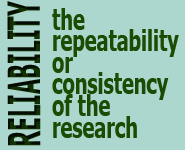Science as a Way of Knowing
 Image Source: Microsoft Clip Art
Image Source: Microsoft Clip Art
Science refers to the system or process of acquiring knowledge about the natural world. To study the natural world, scientists use methods that are empirical, which means that they are grounded in observations and experimentation and are not based on opinions or feelings. Scientific inquiry refers to activities and practices involving scientists’ pursuit of knowledge. Science as a way of knowing refers to the belief that the actions of science are based on logic, evidence and reasoning. Although there are other ways of knowing that may be important in our personal and cultural lives, they rely on opinion, belief and other factors rather than on evidence and testing.
What Do Scientists Assume?
 Image Source: Microsoft Clip Art
Image Source: Microsoft Clip Art
Scientists have a certain worldview about science and their work. Their activities and practices are guided by the following assumptions:
- The physical world is understandable.
- Science cannot provide the answers to all questions.
- Scientific knowledge is durable, but it does not represent absolute truth.
- Scientific ideas are tentative (or subject to change).
What Makes Science Different From Other Ways of Knowing?


Unlike art, philosophy, religion and other ways of knowing, science is based on empirical research. A scientist conducts this research to answer a question that she or he has about the natural world. Empirical research relies on systematic observation and experimentation, not on opinions and feelings. These systematic observations and experiments provide research results (evidence) that must meet two criteria in order for a scientist’s research to withstand thorough questioning. These two criteria are validity and reliability. Validity means that research is relevant to the question being asked. Reliability describes the repeatability or consistency of the research. Research results are considered reliable when other scientists can perform the same experiment under the same conditions and obtain the same or similar results.
Who Are Scientists and How Do They Decide What To Study?
Scientists come from all walks of life and all parts of the globe. Their diversity allows them to look at problems from a variety of perspectives and search for answers in different ways. But even though their approaches may vary, they use empirical methods of inquiry. Because science and the body of scientific knowledge is so broad, most scientists specialize — just as one doctor decides to become a pediatrician, while another chooses to be a brain surgeon. In fact, scientists often spend their entire career studying a specific topic and thus may not be qualified to evaluate the results of scientists who are working in other fields of study.
How Do Scientists Perform Scientific Inquiry?

Scientists, like detectives, work to reveal and explain the unknown, and their inquiry methods share some similarities. The table below illustrates the similarities.
Comparing the Work of Scientists and Detectives

| Scientists … | Detectives … |
|---|---|
| ask questions to discover new information about natural phenomena. | conduct inquiries (or ask questions) to discover what happened. |
| make observations through scientific inquiry. | make observations through surveillance. |
| propose hypotheses based on prior knowledge. | propose likely scenarios based on experience. |
| collect, analyze and interpret data (evidence). | (with help from forensic scientists) collect, analyze and interpret evidence. |
| construct explanations using evidence and reasoning to justify these explanations. | construct likely scenarios using evidence and reasoning to infer or deduce what happened. |
| evaluate or critique other scientists’ explanations. | evaluate alternative scenarios to exclude all other possibilities and suspects. |
| communicate their research methods and findings to other scientists and the public. | present evidence to prosecutors and the courts. |

Image Source: Microsoft Clip Art
But this is where the similarity ends. In our legal system, a jury or judge makes a decision about which side is correct. Once the decision is made, it is usually final (apart from an appeal) because a person can be forced to stand trial only once for a particular crime. The scientific community, however, oftentimes must consider multiple hypotheses to explain the same phenomenon, and scientific inferences are always open to reevaluation by other scientists.

